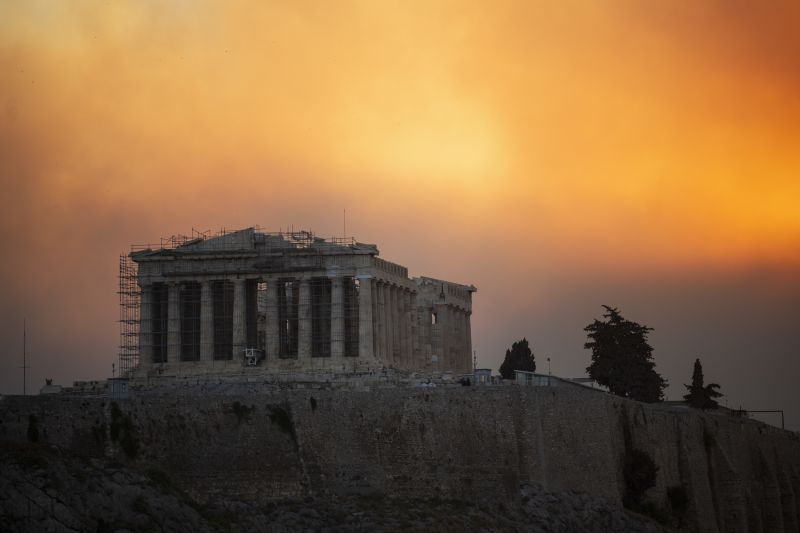A fast-spreading wildfire continued to rage close to the Greek capital of Athens on Monday, prompting authorities to ask residents to evacuate their homes.
More than 500 firefighters, 152 vehicles, 29 water-bombing aircraft and a large number of volunteers are working to extinguish the blaze, which broke out Sunday near the town of Varnavas, north of Athens, fire authorities said.
Despite overnight efforts to contain the wildfire, officials warned Monday that it had “developed rapidly” and was heading towards Penteli, around 16 kilometers (about 10 miles) northeast of Athens.
Fires officials have not said how big the fire is, but Greek public broadcaster ERT estimates it exceeds 30 kilometers (about 19 miles).
Although wildfires are common in Greek summers, climate scientists say that unusually hot and dry weather linked to global warming make the blazes fiercer and more common. Greek authorities have battled dozens of blazes already this summer after enduring its hottest June and July on record.
The country’s climate crisis and civil protection minister, Vassilis Kikilias, warned over the weekend that “extremely high and dangerous weather conditions” would continue through Thursday.
Health minister Adonis Georgiadis said two dozen children were evacuated from a children’s hospital in Penteli and that health centers had been put on high alert. Two hospitals have been evacuated, fire officials said.
“Winds overnight remained strong creating dangerous conditions. Unfortunately, their intensity is expected to increase in the next few hours and the citizens of the areas where the fire is developing should in any case follow the instructions of the authorities,” fire service spokesman Vasilios Vathrakoyiannis said.
Officials also said that homes have been damaged, without specifying how many.
The wildfire has raised fears that Greece could be heading for a repeat of last summer, when blazes scorched through several regions and islands, including its heavily-forested national park, known as the “lungs of Athens.”

